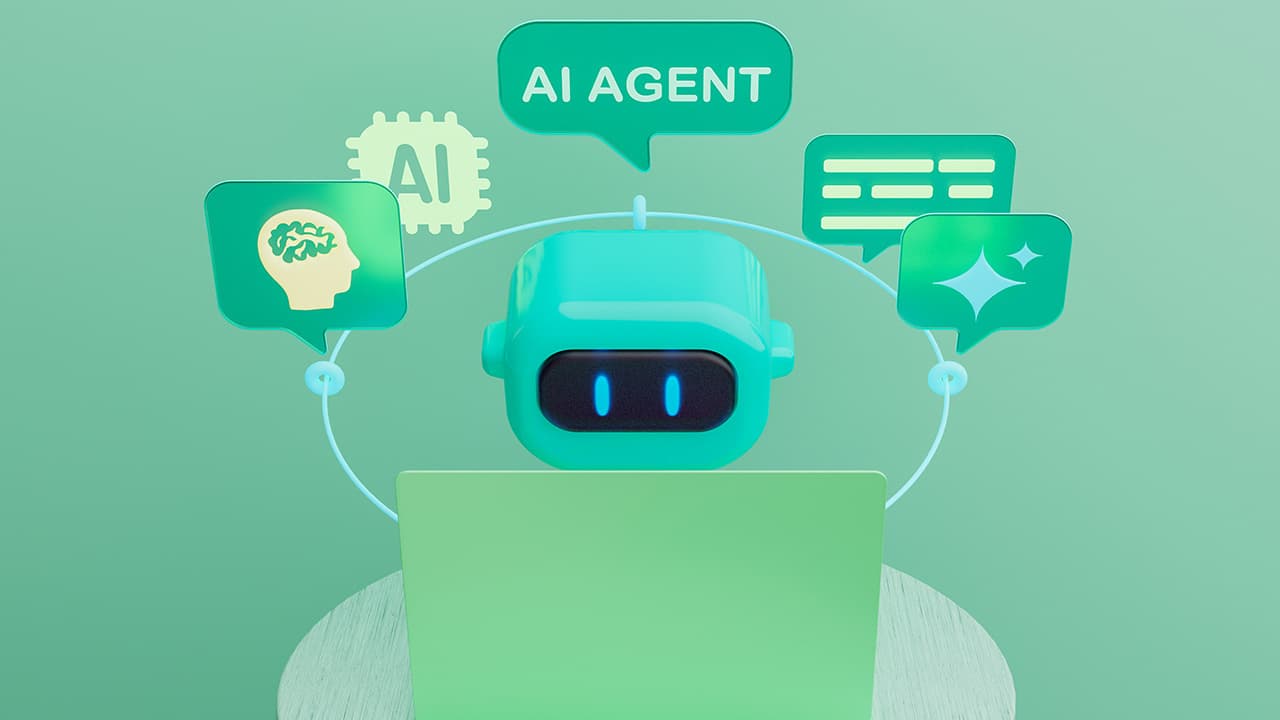AI Agents: The Next Level of Intelligent Automation
AI agents are an advanced type of software that functions autonomously, learning from its environment and continuously improving to achieve specific goals. Unlike traditional software, which strictly follows coded instructions, AI agents can adapt based on past experiences and interactions. This ability to learn and evolve makes them highly versatile in a range of applications, from logistics to customer service. The evolution of AI agents represents a shift in software design—moving from systems that simply execute tasks to intelligent agents that operate effectively in dynamic, real-world scenarios.
What is an AI Agent?
AI agents are distinguished by a few defining characteristics that set them apart from traditional software and basic automation:
- Autonomy: AI agents function independently, performing tasks without needing continuous human intervention. They can work around the clock or in settings where human involvement is minimal or impractical.
- Adaptability: These agents adjust their actions and improve performance by learning from past experiences. This ability to adapt makes them capable of handling unpredictable situations and refining their responses over time.
- Goal-Orientation: AI agents are designed with specific objectives in mind, often within a larger framework of tasks, which allows them to focus on outcomes and work towards achieving them efficiently.
- Environmental Interaction: By gathering data from sensors or external systems, AI agents assess their surroundings and make real-time decisions, adjusting their actions to match changing conditions.
These unique traits have sparked interest in sectors such as finance, healthcare, retail, and logistics. AI agents’ ability to process and respond to massive amounts of data in real time can transform operations, making them more flexible, efficient, and responsive to changing demands.
Key Features of AI Agents
AI agents stand out from traditional software programs thanks to several advanced features, which empower them to operate autonomously in complex scenarios.
1. Complex Decision-Making
While traditional automation tools are well-suited to predefined, repetitive tasks, AI agents excel at making context-sensitive decisions. They assess multiple factors, weigh options, and adjust their actions based on the situation. For example, in logistics, an AI agent might consider current stock levels, delivery schedules, and traffic data to optimize distribution routes. This ability to manage complex scenarios with many influencing factors makes AI agents valuable for industries where a single "right" answer isn’t always clear.
In healthcare, for example, an AI diagnostic agent can analyze a patient’s medical history, current data, and recent medical research to recommend treatment options. This adaptability is especially valuable in fields where decisions can have significant consequences, as AI agents can help professionals make more informed choices.
2. Integration with Large Language Models (LLMs) and Specialized Tools
AI agents often integrate with advanced models like large language models (LLMs) to expand their capabilities. These models help AI agents understand and interpret natural language, a crucial skill for tasks requiring human-like interaction. For instance, an AI customer service agent with LLM capabilities can interpret open-ended questions, manage multi-step conversations, and even gauge the sentiment behind a customer’s message.
In specialized fields, AI agents are often enhanced with domain-specific models. In finance, for example, agents may access real-time market data, run risk analyses, and adjust investment strategies as conditions change. In education, an AI agent might use adaptive learning models to personalize lessons based on a student’s progress and learning style. By integrating specialized models, AI agents become highly effective in addressing industry-specific challenges.
3. Learning and Continuous Improvement
Unlike traditional software that follows fixed rules, AI agents continuously evolve as they complete tasks. For example, an AI customer service agent may start with limited information but improve its responses by analyzing past interactions, feedback, and outcomes. Over time, it becomes better at anticipating customer needs, solving issues, and even identifying trends in customer behavior to address them proactively.
This capability is valuable in e-commerce, where AI agents can create personalized shopping experiences, in healthcare, where they suggest tailored treatments, and in cybersecurity, where they detect emerging threats by learning from new data.
AI Agents vs. Traditional AI Systems
AI agents represent a major step forward compared to traditional AI systems, which are often built around rigid rules and predefined workflows. Here’s how AI agents differ fundamentally from traditional AI systems:
-
Decision-Making Process: Traditional AI relies on fixed rules and linear decision-making, making it less adaptable to unforeseen situations. AI agents, by contrast, learn from experiences, enabling them to analyze data, adapt to new scenarios, and make decisions without human intervention.
-
Autonomy: Traditional AI systems typically need human oversight, which can limit efficiency in fast-paced environments. AI agents are designed to operate independently, which is especially valuable in critical fields like healthcare or finance, where quick, data-driven decisions are essential.
-
Transparency and Explainability: Traditional systems often offer more straightforward, rule-based decision-making, making them easier to understand and trust. AI agents, however, may function as "black boxes," where the reasoning behind decisions isn’t always clear. Efforts in explainable AI (XAI) aim to improve the transparency of AI agents, especially in areas where trust is crucial.
-
Performance and Adaptability: Traditional systems perform reliably within set parameters but struggle with new conditions. AI agents, however, continuously learn and improve, refining their strategies based on real-time data. This adaptability is crucial in industries with constantly changing variables.
-
Complexity of Tasks: Traditional AI systems handle simple, repetitive tasks. AI agents, however, can manage complex, multi-step tasks that require real-time feedback, making them suitable for intricate scenarios across various industries.
The Growing Potential of AI Agents
The versatility of AI agents is driving their adoption across a wide range of industries, from automating routine tasks to solving complex problems in real time. As they continue to evolve, AI agents are expected to play an even more critical role in areas where data-driven decisions can lead to significant gains. They will likely drive transformations across industries by streamlining workflows, optimizing resources, and enabling new forms of human-machine collaboration.
AI agents are redefining what software can achieve by offering autonomy, adaptability, and intelligence that traditional systems cannot match. As they become integral to sectors like finance, healthcare, and logistics, AI agents are not just tools—they’re becoming partners in decision-making and problem-solving.












